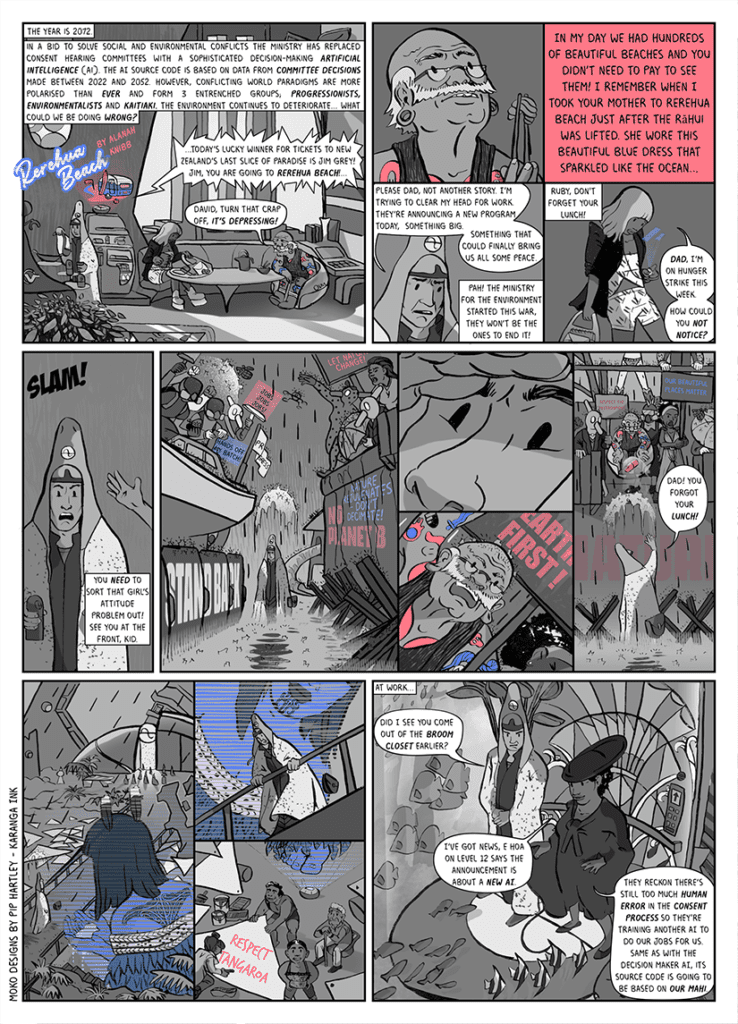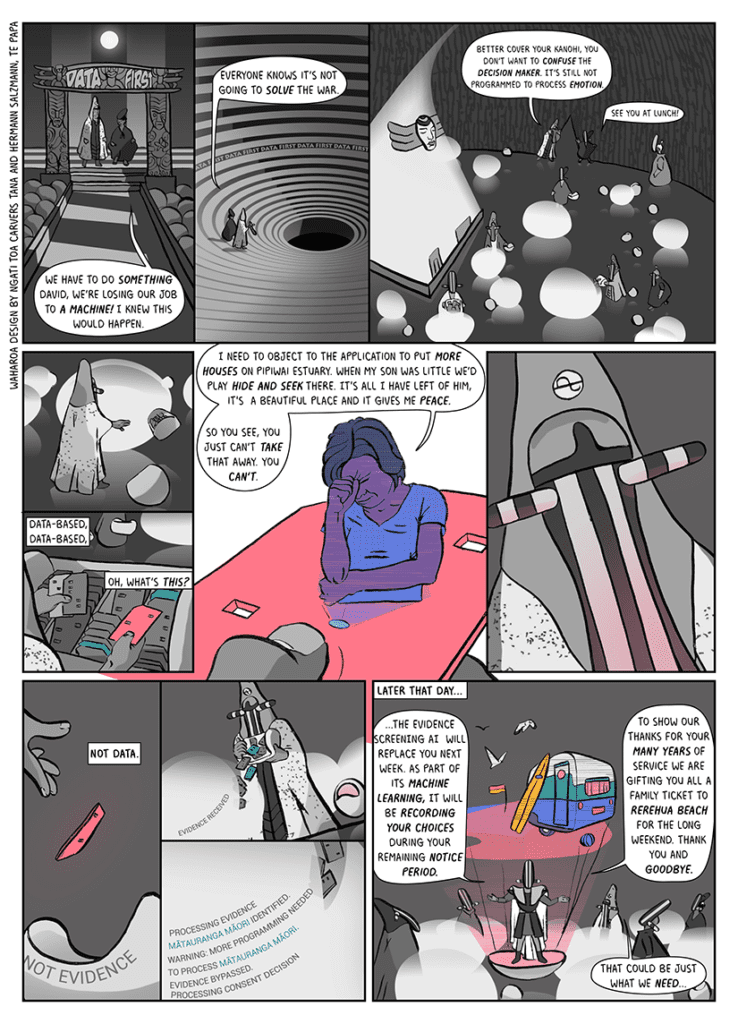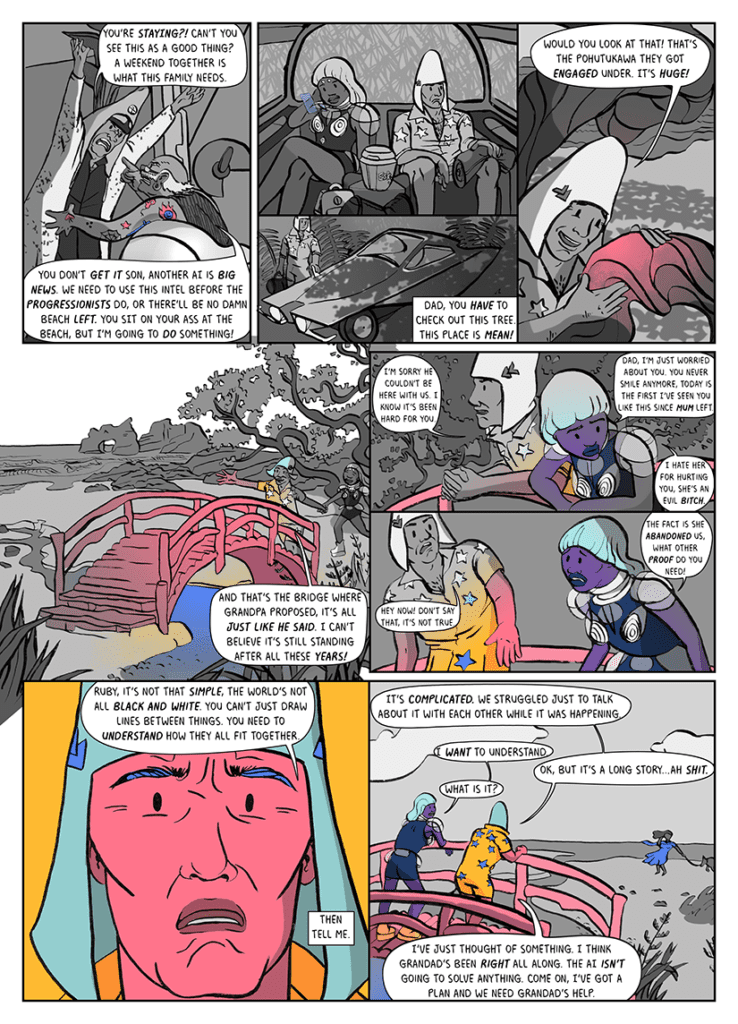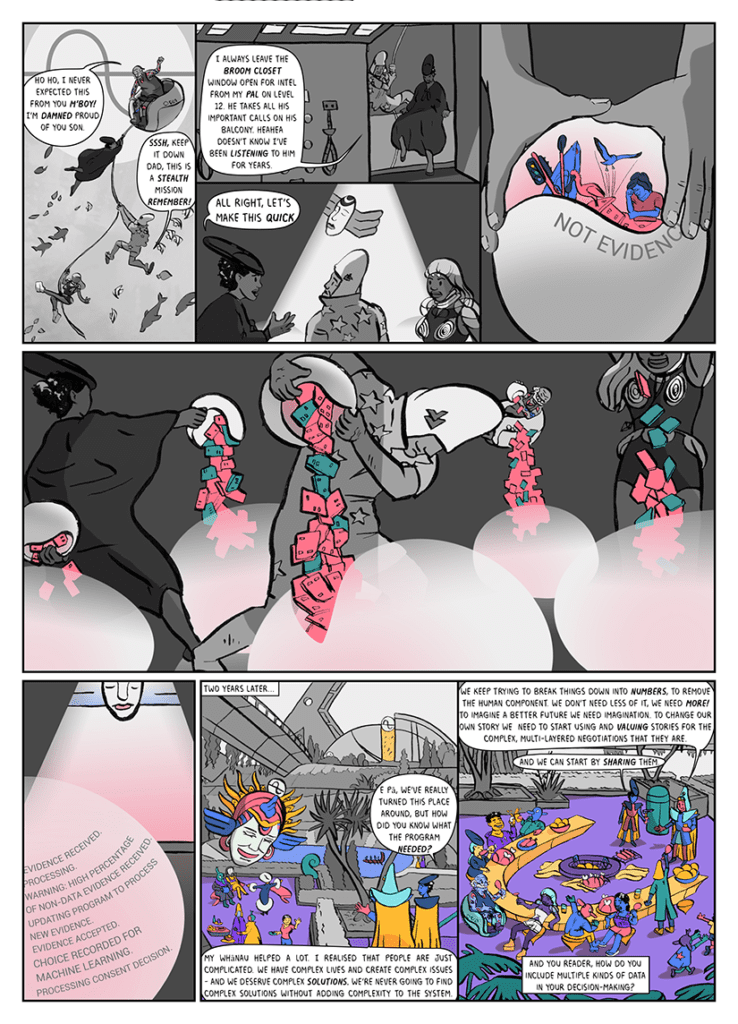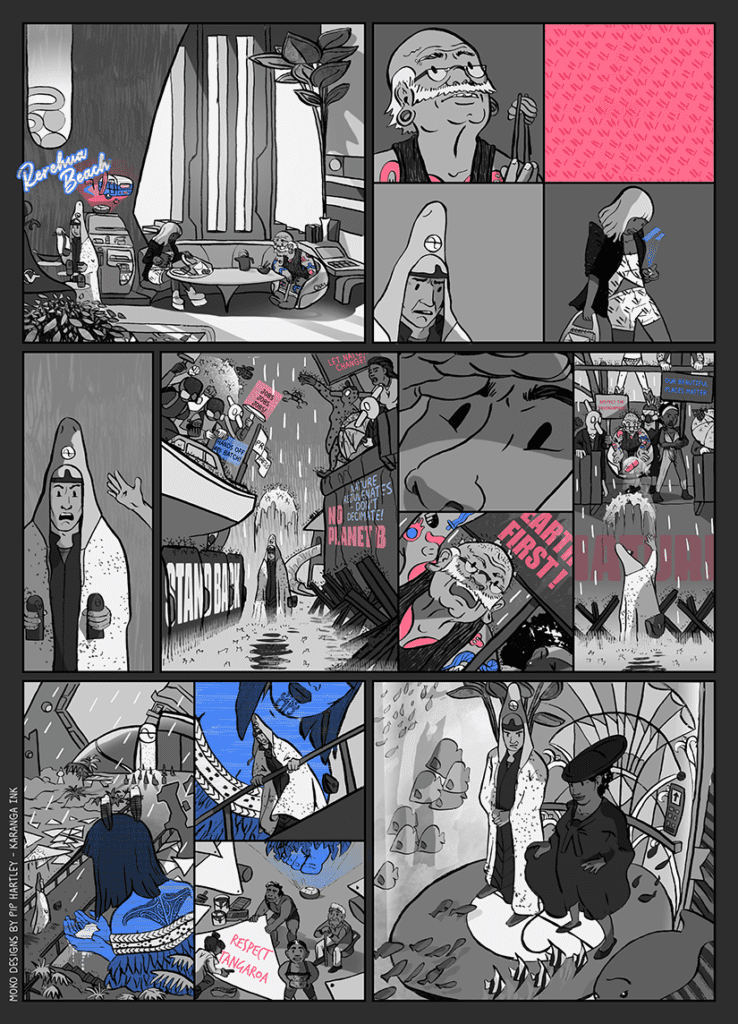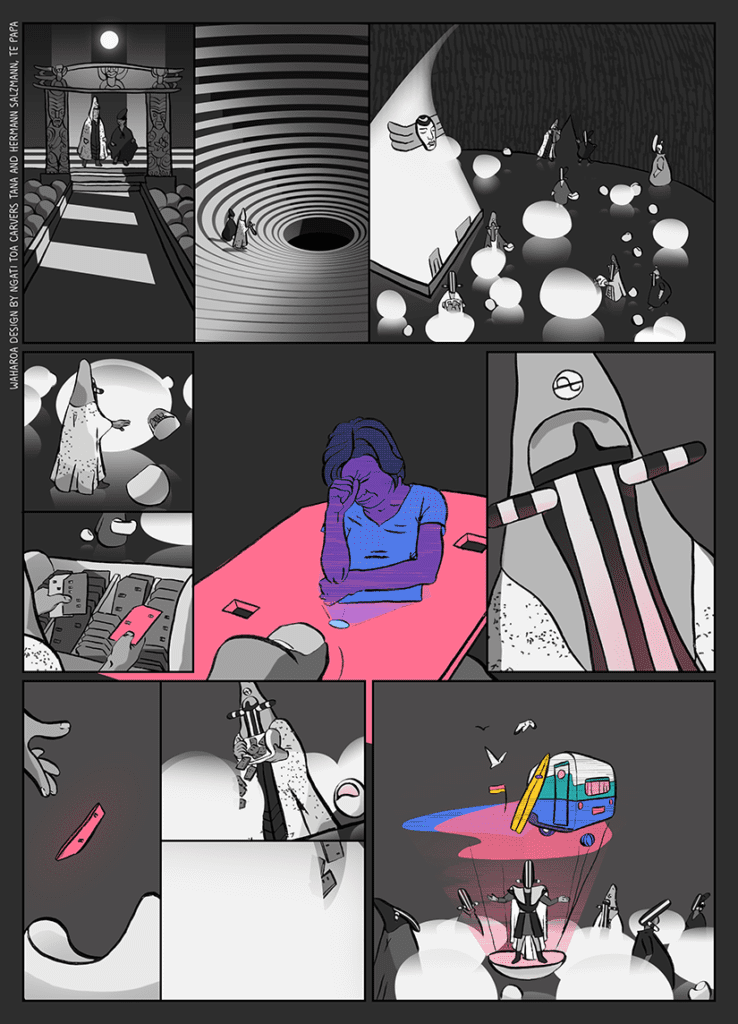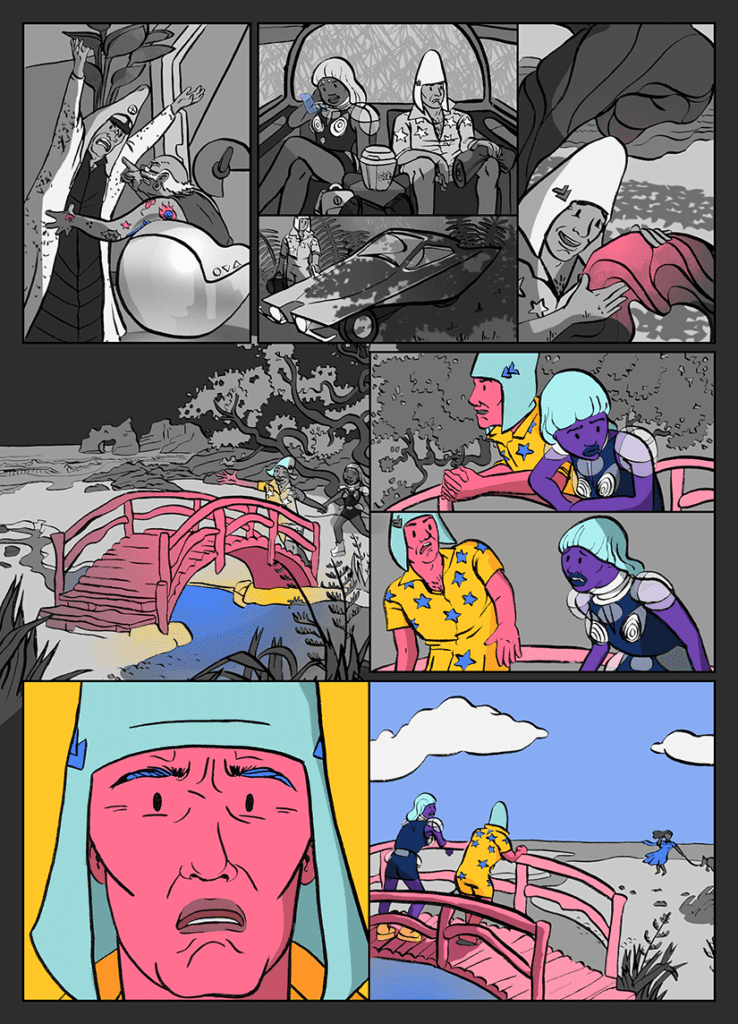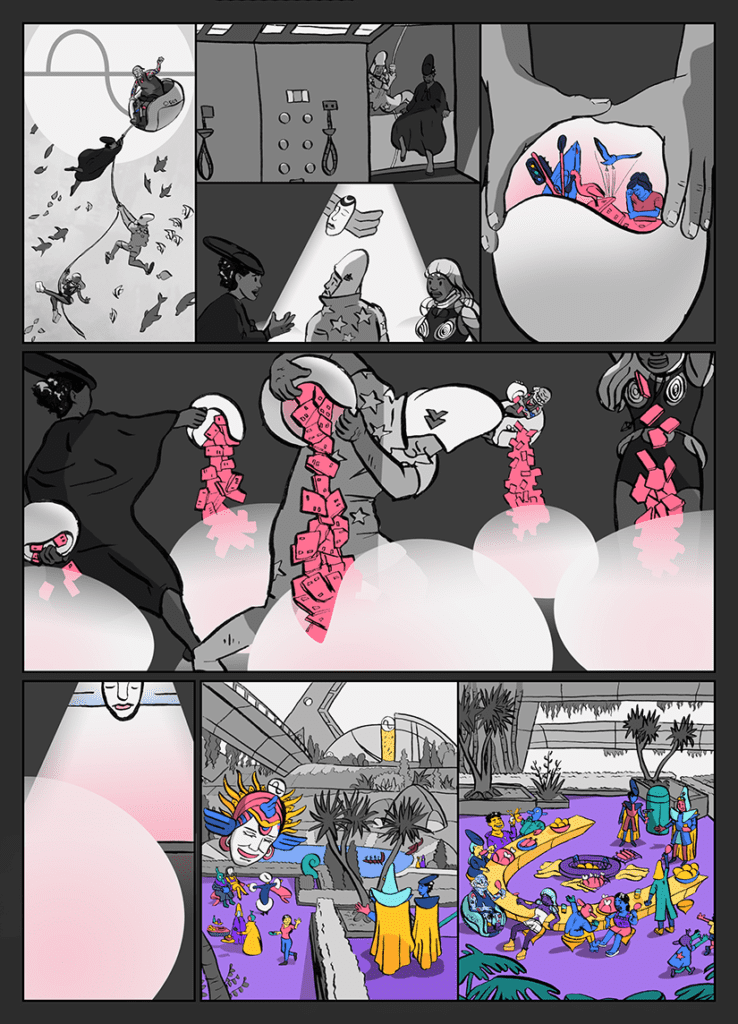Rerehua Beach was an action-research project designed using story-based strategy to shift attitudes around what should be considered as evidence when making decisions for environmental planning. It was an output of a broader project led by Paula Blackett and Shaun Awatere that examined perceptions of risk and uncertainty which can be a source of conflict in decision-making. The project took a grounded (case study) approach with mātauranga Māori at its centre. This comic exposes a future where one view on “what is evidence” determines the outcome of environmental decisions and actions: it asks if this is the future we want? And if not, what might we do?
As Creative Lead & Communications Strategist for this project I chose an approach pioneered by the Centre for Story-Based Strategy. I collaborated closely with Paula Blackett to identify an idea or story prevalent among the target audience that stands in the way of the change Paula’s team wishes to see. We strategically crafted an alternative story that undermines the problem narrative and uplifts values in line with Paula’s research. This strategy aims to change attitudes and behaviour.
Delivered
“The cartoon idea is a very creative and challenging confrontation with a single idea taken to an extreme – embodiment of ‘screened’ data as AI source code. A very intriguing and compelling proposition that is realistic and potentially real.”
Prof. Richard Le HeronProfessor of Geography, University of Auckland
Strategically Crafted Plotline
The year is 2072. In a bid to solve social and environmental conflicts the Ministry for the Environment has replaced consent hearing committees with a sophisticated decision-making Artificial Intelligence (AI). The AI source code is based on data from committee decisions made between 2022 and 2052. However, conflicting world paradigms are more polarised than ever and form three entrenched groups, Progressionisits, Environmentalists and Kaitiaki. Despite this new AI system, the environment continues to deteriorate… what could we be doing wrong?
This family drama unfolds in a future that’s not hard to imagine. For struggling, single-parent David, a redundancy package holiday may hold the answers to solving not only his own family crisis but the wider social problems dividing the landscape.
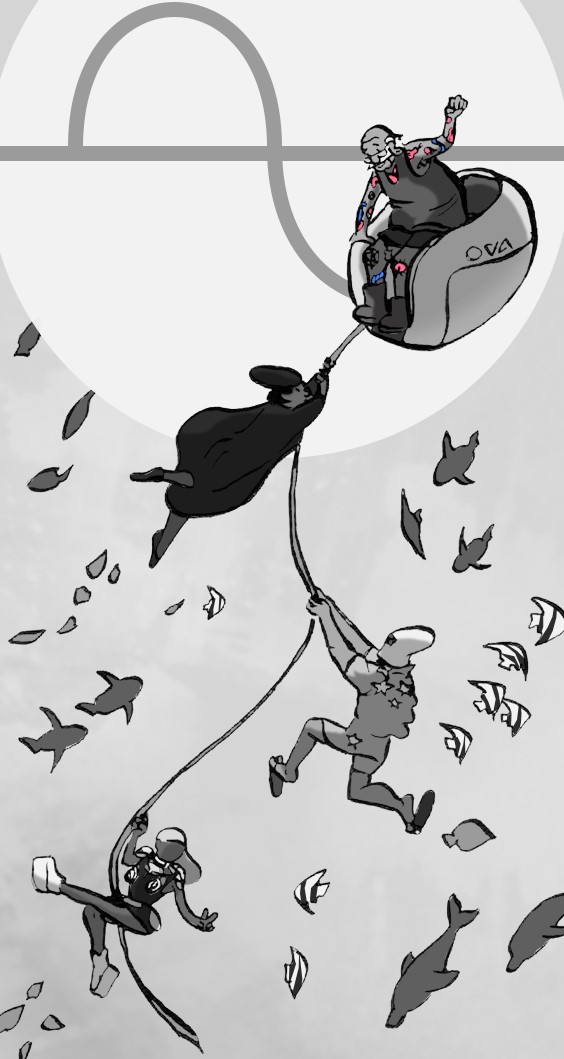
Grandpa
stubborn, nostalgic, activist
Māia
Good leader, resourceful, goal-oriented
David
Keeps his chin up, learning, cares about his family
Ruby
Activist, extroverted, cares about her family
Process
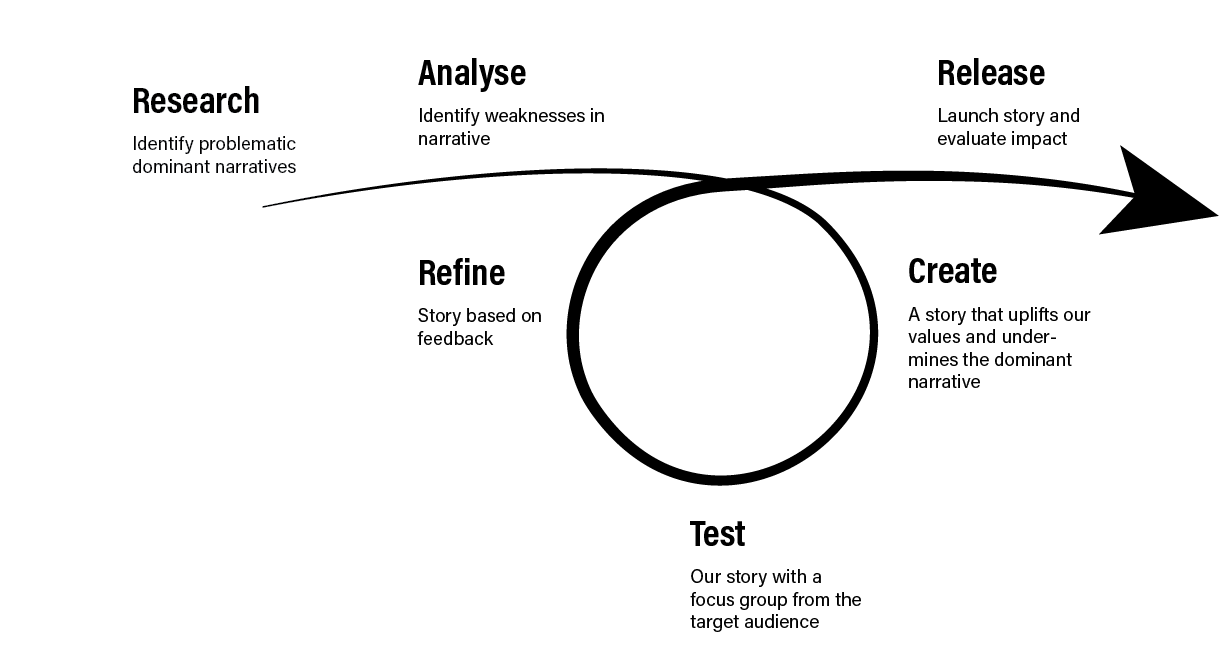
“It is unprofessional to include aspirations, stories, concerns and feelings in the resource management process”.
Job security is not guaranteed, even if you follow the system. Following the norm does not always lead to good results and good decisions.
1. Data alone does not accurately represent the full human experience. 2. Stories are a good way of representing human experience and values. 3. Data-based decision-making alone is not enough to create a positive, unified future.
Huge thanks to our focus group participants.
3x drafts of script.
Released through channels specific to the target audience.
Using a mobile phone? Use the magazine viewer below in fullscreen.


